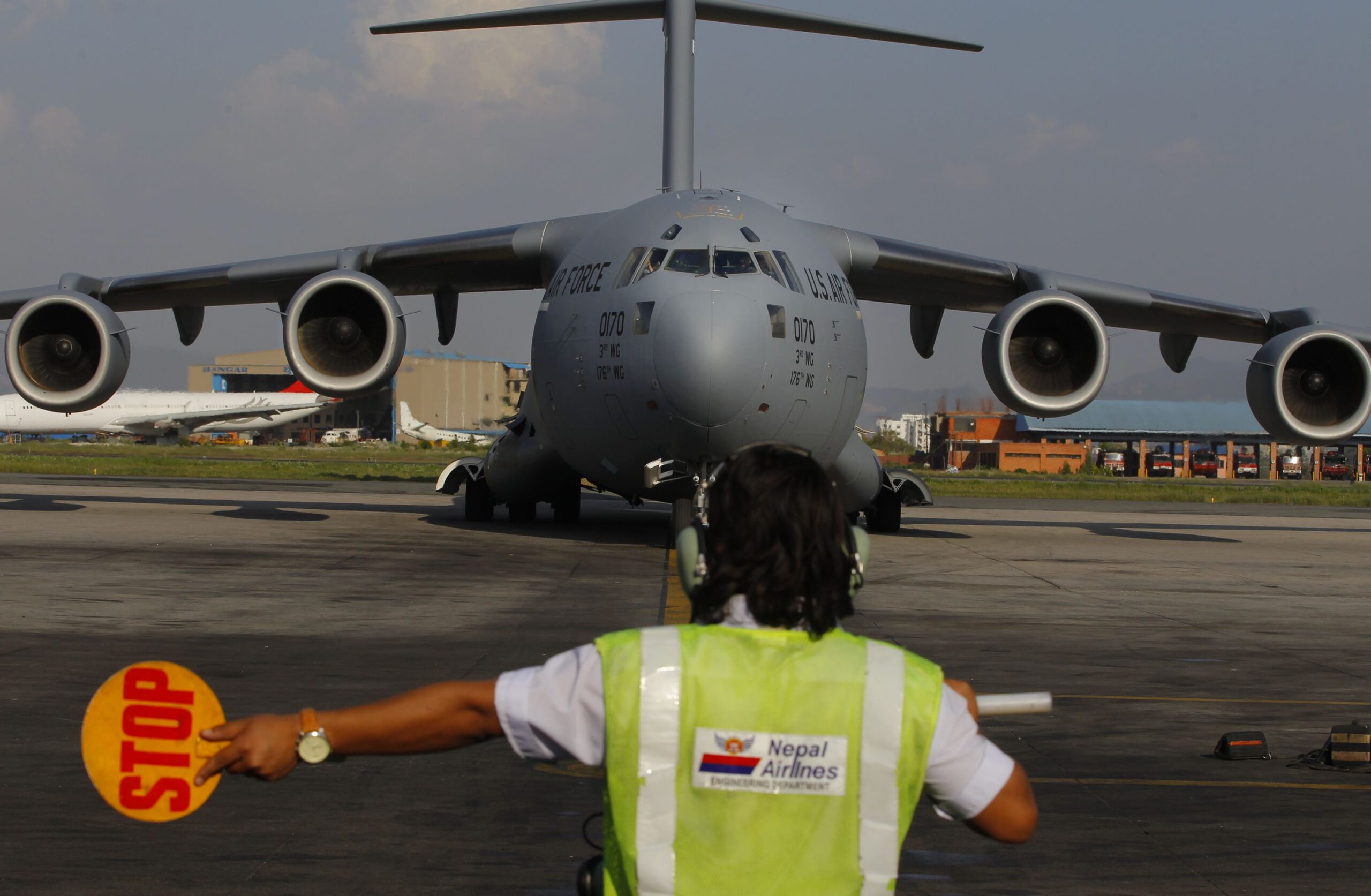WASHINGTON ― The Pentagon is taking another stab at opening competition for the AIR Card program, a government credit card widely-used to pay for a huge military expense ― fuel, but the effort is facing skepticism from a key lawmaker.
Under the contract, troops use the Aviation Into-Plane Reimbursement (AIR) cards and Ship Bunkers Easy Acquisition Card (SEA) cards to keep U.S. military aircraft around the globe fueled up and ready to go. The contract holder processes the transactions and profits almost entirely from transaction fees it charges the government’s network of commercial fuel suppliers.
But in a December letter to the Defense Logistics Agency, Rep. Michael Waltz raised alarms about DLA’s award of the contract last June to Miami-based Associated Energy Group, instead of longtime incumbent Kropp Holdings Inc., of Overland Park, Kansas. After KHI protested the decision, DLA scrapped the award and opted to reopen the competition.
KHI alleged in its protest that, because AEG is a fuel supplier, allowing it to manage the service would be unfair to other suppliers and spur them to exit the government’s fuel supply network.
Waltz, who chairs the House subcommittee on military readiness, had similar concerns. According to his office, multiple fuel suppliers reached out to Waltz with worries that if AEG managed the network, it could compromise their proprietary information and force them to consider leaving the government’s network.
In Waltz’s letter, he said, without mentioning KHI or AEG by name, the contract should go to a “neutral liaison” between fuel suppliers and the government.
“I am concerned that the compromised competition could potentially damage the government’s aviation fuel network and military readiness,” Waltz said in the Dec. 12 letter, obtained by Defense News.
Whichever company wins will get to manage and charge fees for a huge number of transactions for fuel and related services. According to solicitation documents, KHI handled just over $1 billion in military fuel sales and ground service expenses in 2019 and nearly $900 million in 2018. How much KHI earned that way isn’t public, and the listed $2.5 million contract value for last year likely only reflects what KHI charged to the government.
While the competition continues, the DLA subagency responsible for the contract, DLA Energy, has extended its current contract with KHI to June 30, 2023, and included a six-month option that, if exercised, would further extend the contract to Dec. 31, 2023.
AEG did not respond to multiple requests for comment.
DLA spokeswoman Michelle McCaskill said there’s no time-frame for a new award.
“DLA Energy determined that corrective action was the best course of action in response to the protest and is therefore re-evaluating relevant offers,” she said. “DLA is unable to provide further details while the source selection process is ongoing.”
Asked to address concerns about potential conflicts of interest, McCaskill said DLA follows the relevant federal acquisition regulations.
In a statement, KHI President Virginia Zimmerman said KHI should win the contract again because the company maintains a large network of fuel suppliers and was the longtime incumbent.
“KHI is uniquely qualified to support the warfighter due to KHI’s position in maintaining and operating one of the world’s largest commercial aviation fuel networks, decades of experience and expertise in providing government technology solutions, and successful management of the on-the-ground complexities facing the U.S. Government in the procurement of fuel across the globe,” Zimmerman said in the statement.
Joe Gould is the senior Pentagon reporter for Defense News, covering the intersection of national security policy, politics and the defense industry. He served previously as Congress reporter.

